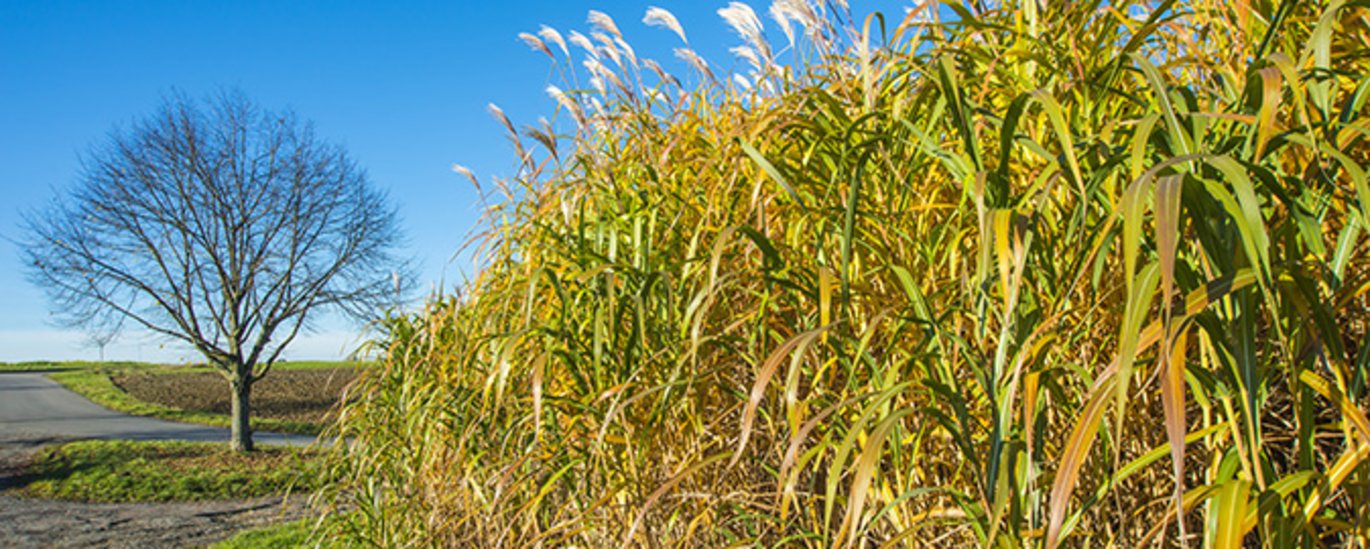New project optimizes value chains for miscanthus and hemp
The new project GRACE will contribute to the innovation in the European bioeconomy.

The FACCE SURPLUS project MISCOMAR has resulted in a new BBI demonstration project that optimizes value chains for miscanthus and hemp. The project called GRACE has been granted 15 million Euro and will contribute to the innovation in the European bioeconomy.
There are three essential conditions for further developing the bioeconomy as a sustainable alternative to fossil oil: sustainable products with strong market potential, a reliable and affordable supply of sustainably produced biomass, and a better link between biomass producers and the processing industry. Other important factors include avoiding competition with food production and maintaining biodiversity.
The BBI demonstration project “GRowing Advanced industrial Crops on marginal lands for biorEfineries” (GRACE) under the coordination of the University of Hohenheim in Stuttgart pursues these aims as a unique consortium made up of universities, agricultural companies and industry.
This will be achieved by knowledge exchange between these groups, together with new crop varieties and cultivation experiments on areas that have been polluted by heavy metals, for example, or are unattractive for food production due to lower yields.
The EU and the industrial association Bio-based Industries Consortium (BIC) are supporting the project with € 12.3 million through their private-public partnership (PPP) Bio-based Industries Joint Undertaking (BBI JU). The private project partners are contributing the remaining € 2.7 million.
Miscanthus and hemp: testing new varieties
The project partners will focus on two crops; miscanthus and hemp. In particular, the perennial crop Miscanthus is high yielding and requires little agricultural input. Until recently the crop was planted via cloned rhizomes, which resulted in high planting costs and limited the potential for expansion.
This project will capitalize on new seed-based varieties developed by the universities of Wageningen (NL) and Aberystwyth (GB) to decrease establishment costs. The project will test seven new varieties from each university with the help of industrial partners Terravesta (GB) and the seed company Vandinter Semo (NL).
The objective is to commercialize new varieties with improved quality, that are cold and drought tolerant, require lower establishment costs and have comparable yields to the commercially standard variety, Miscanthus x giganteus.
Improving value chains
A key goal of the project is to construct value chains for biomass between project partners in order to maximize the use of every part of the crop. The partners will demonstrate a series of examples from construction and insulation materials, platform chemicals for producing plastics, bio-fuel, composite materials, medical/cosmetic applications, and bioherbicides as a replacement for glyphosate.
Expertise for and feedback from industry
As the project develops there will be opportunities for interested companies to participate via an industry panel, which will allow companies to share common experiences and discuss broadening the scope of potential end-uses for biomass. It will also accelerate the implementation of research findings into agricultural and industrial practice.
Assisted by the University of Hohenheim and the technology cluster for green chemicals SPRING (Sustainable Processes and Resources for Innovation and National Growth) from Italy, interested industry representatives from the industry panel will have the opportunity to meet up at conferences, receive project updates via newsletters, and be provided with hemp and Miscanthus biomass to enable them to conduct their own tests.
For further information, please contact:
M.Sc. Andreas Kiesel
University of Hohenheim
Department of Biobased Products and Energy Crops
Phone: +49 711 459 22379
Email: a.kiesel@uni-hohenheim.de
Prof. Dr. Iris Lewandowski
University of Hohenheim
Head of Department of Biobased Products and Energy Crops
Phone: +49 711 459 22221
Email: Iris_Lewandowski@uni-hohenheim.de
